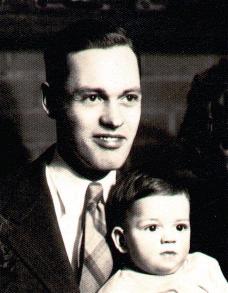“I think sometimes when you move away from your hometown, you kind of begin to romanticize it.” This status update from a cross-generational Facebook friend got me thinking (Uh-Oh). What is it that draws us back?
Hometown: the city or town where one grew up, or the place of one’s principal residence. It is not to be confused with birthplace, although the two can be the same place. (Wikipedia)
I was born in Westfield, but moved to Southwick with my family when I was 4 years old.
Southwick is where I grew up. Southwick is my hometown. Granville road . . . fifth house on the left. I walked to Consolidated School. I could also walk to the library, Balch’s and Jones’ grocery stores . . . and Joe’s.
Joe Eisenstein was the pharmacist who owned Southwick Pharmacy. We only knew it as Joe’s. The old building had a soda fountain and booths in the back where we would read comic books. Joe was always behind the pharmacy counter, and Ethel Stanton would make us cherry cokes at the fountain. Holcomb’s Florist was next door. We would buy the occasional carnation for Mom and, later on, corsages for semi-formals and proms. Pearl Holcomb was also the babysitter who taught us how to play cards.
The schoolyard at Consolidated was where we hung out . . . the slide, the monkey bars, the baseball field and basketball court, and that long hitching post from Southwick Fair days. There were no organized youth sports in those days (1950’s). We chose teams, settled disputes, and developed a system of fairness all without adult intervention. Sometimes on Saturdays Bill Lent, the custodian at Consolidated, would let us use the indoor bandbox basketball court if we helped pick up after CCD classes.
In the winter time we would ice skate on the little pond behind the library. We just called it Mr. King’s pond. If it snowed, kids would bring shovels to keep it clear. There was a little garden shed where we could leave our shoes after putting on our skates. Griffin’s hill was across the street for sledding. One day, after a storm, school was cancelled. Johnny Deveno and his Mom showed up in a two horse sleigh. We rode all over the streets of Southwick, our hometown.
The old Joe’s Drug Store was torn down to build a more “modern” pharmacy. It is now a liquor store. Holcomb’s Florist is a bank today. Balch’s and Jones’ are gone. Consolidated School is the town hall. The basketball court is still there, but the baseball diamond, the slide and monkey bars are all parking lots. The old hitching rail, like the Southwick Fair, is long gone. The old library stands vacant, and Mr. King’s pond is an overgrown trickle of a brook. There’s a house on Griffin’s hill, and sleigh rides on the snow covered streets now exist only in my mind’s eye.
Those places really existed . . . those things really happened. Is it my hometown that I romanticize . . . or is it the innocence and magic of childhood? I think time and place are inextricably intertwined. We can’t think of our hometown without thinking of the time we lived there. I still live in my hometown . . . but it’s not the same place where I grew up.
That place still exists . . . but I have to close my eyes to visit.

